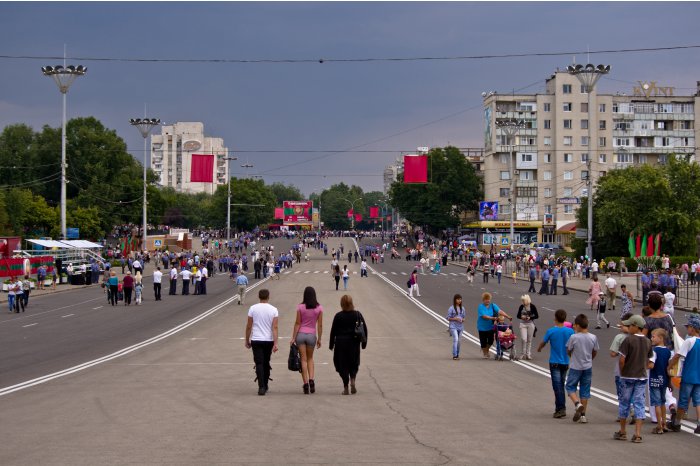Economic crisis from Transnistrian region worsened by political decisions - experts
14:30 | 22.06.2016 Category: Economic
Chisinau, 22 June /MOLDPRES/ - The economic crisis from the Transnistrian region is deepening against a background of a decrease in the domestic demand, erosion of export activities, as well as of major political divergences on the eve of the “presidential polls,” according to the publication of the Expert-Grup Independent Analytical Centre.
The Convergence Index, which calculates the degree of rapprochement between the economies from the two banks of Dniester, dropped to 94.8 per cent in the second quarter of 2016, against 97.1 per cent in the same period of the last year, reads the June issue of the publication ”Realitatea economică transnistreană” (Transnistrian economic reality), edited by Expert-Grup, with the support of the programme Support to Confidence Building Measures, financed by EU and implemented by the United Nations Development Programme (UNDP).
Although the economy from the left bank of Dniester decreased by an unlikely 20 per cent in 2015, it gives no signs of recovery. Against a background of a dramatic cut in the residents’ incomes, including the remittances, as well as of the deficit in foreign currency, the imports dropped by about one third in the second quarter of 2016 against the year before, experts said. Moreover, “the high level of economic and social uncertainty in the region fueled the emigration of capital to Ukraine and the right bank of Dniester, and the accumulation of capital is to decrease by 20 per cent. On this period, the exports dropped by about five per cent, to a great extent, because of the maintenance of the fixing of the “exchange rate of the Transnistrian rouble.”
The convergence index has been decreasing during four quarters in a row already. The main reasons of the divergence regard a more negative evolution of the domestic demand, imports, as well as of the agricultural sector from the Transnistrian region against the indexes recorded on the right bank of Dniester.
The economic policies are affected by the prevailing of the political interests in the region. This fact is noticed, in particular, in the reticence of the decision-makers from the region as concerns the controlled depreciation of the “Transnistrian rouble”, which is based on false premises, both from the economic and the political viewpoints. In particular, the concerned policy does not protect the residents’ incomes in any way, on the contrary, it affects them, the publication reads.
In this context, Expert-Grup recommends an urgent, yet checked and dosed depreciation of the “Transnistrian rouble” by about 15 per cent till late 2016, and by another 25 per cent during 2017, concomitantly with active measures of stimulating investments, in order to remove the phenomenon of black market capital and revive exports.
(Reporter V. Bercu, editor A. Raileanu)

